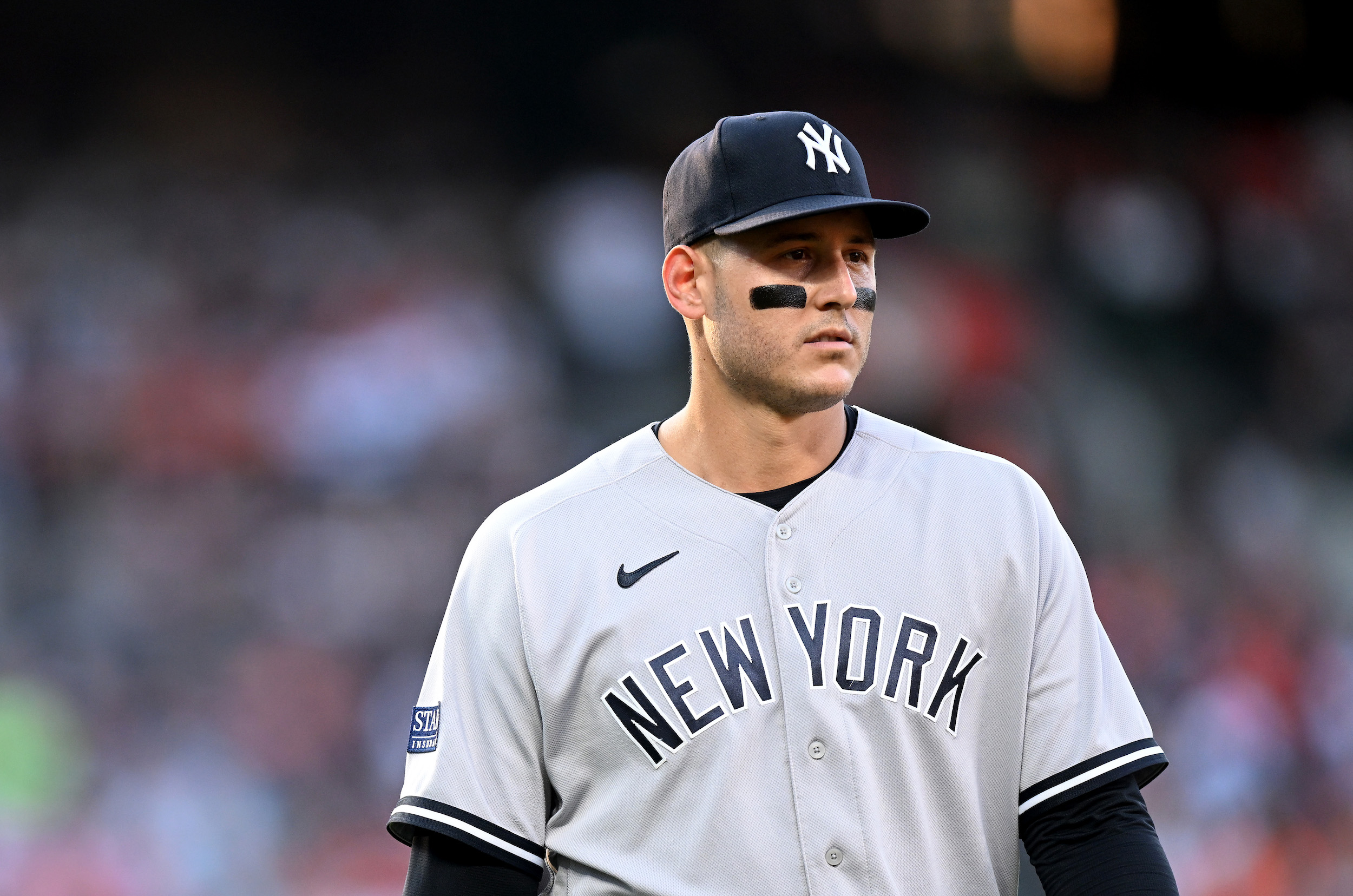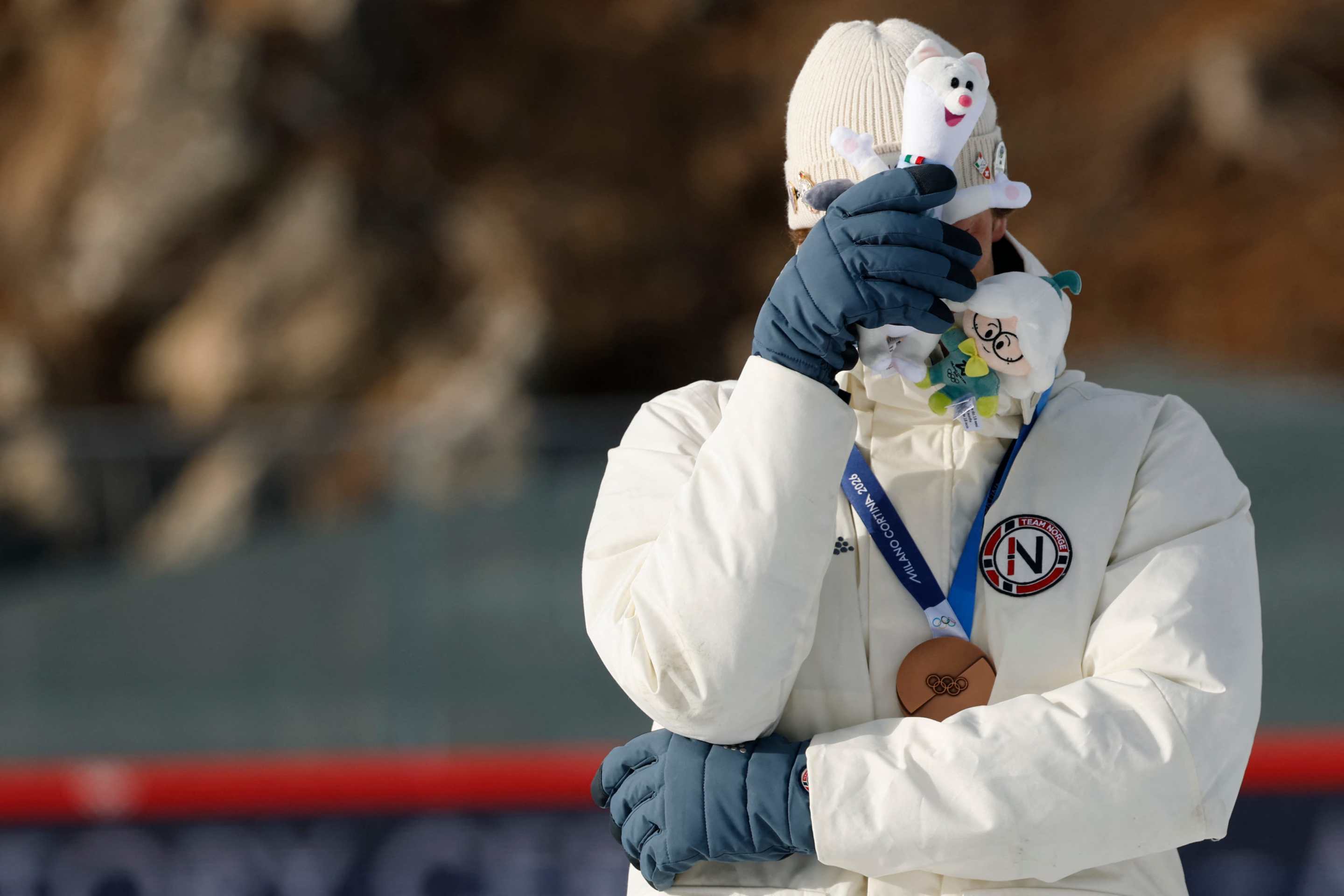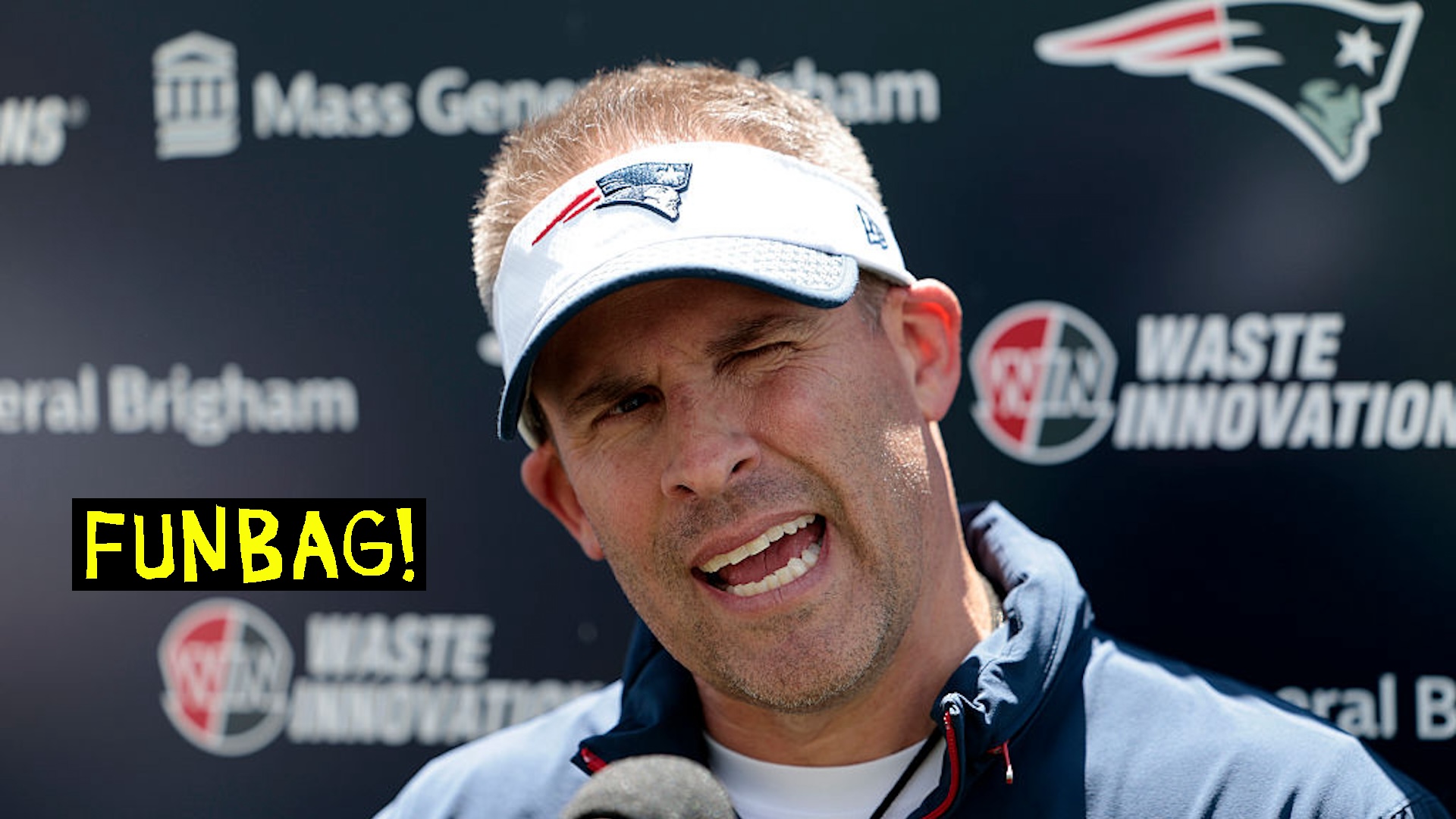The New York Yankees added first baseman Anthony Rizzo to the 10-day injured list Thursday, citing post-concussion syndrome. Rizzo reported experiencing "fogginess" to the team's medical staff after a game against the Orioles on July 30; he then played the next two days, going 2-for-8 in back-to-back losses to the Tampa Bay Rays. Wednesday the Yankees sent him for a round of neurological testing, which reportedly revealed "signs of cognitive impairment," per MLB. Rizzo received assurances from doctors that he should make a full recovery; manager Aaron Boone said the Yankees will evaluate his condition "week to week." What is most notable about this sequence of events is that the collision that caused this brain injury occurred not during that July Baltimore series but more than two months ago, on May 28.
Rizzo was injured on a play against the San Diego Padres, in the final game of a three-game series in New York. Fernando Tatís Jr. was on first with two away in the sixth inning. Yankees catcher Kyle Higashioka made a quick and accurate back-pick throw after a strike to Xander Bogaerts. A good pickoff throw will tend to lead a first baseman's glove toward the dirt for a quick tag on a sliding baserunner. Tatís did not slide; instead, he lunged with his right leg. That decision plus the throw brought Rizzo's head and Tatís's right hip into violent contact. It was apparent immediately that Rizzo was hurt and woozy.
Yankees Anthony Rizzo was pulled from the game after getting injured tagging out Fernando Tatis Jr. #RepBX pic.twitter.com/jGQJd6htFQ
— Sports Injury Central (@SICscore) May 28, 2023
Rizzo stayed on the ground for a few minutes and was eventually led into the clubhouse, where he was apparently subjected to and passed a concussion test. The Yankees called it a neck injury, and Rizzo sat out a three-game series in Seattle before rejoining the lineup on June 2. He immediately fell into what probably looked at the time like just an annoying slump, going 4-for-48 over a 13-game stretch, with one extra-base hit and 11 strikeouts. The Yankees returned home from a brief road trip on June 20, for series against the Seattle Mariners and Texas Rangers. Over six games Rizzo had seven hits; he had a couple doubles; he walked as often as he struck out; and in general he looked something more like himself. The Yankees won both series. It's possible to believe that anyone who was keeping an eye on Rizzo's production as a sign of his overall wellbeing could've seen this as a positive indicator that the slump of early June was just a slump.
Zoom ahead to early August, though, and it's clear that Rizzo has not been alright. For one thing, his production fell off dramatically. When the Yankees removed him from that Padres game on May 28, Rizzo was batting .304 and slugging .505, with an OPS of .880. In 90 plate appearances in June he batted .173 with four total extra-base hits; in 98 plate appearances in July he batted .167 with three total extra-base hits. Rizzo struck out 27 times in July, the most strikeouts he's registered in any month since 2016. He'd been performing at an MVP level through the first two months of the 2023 season, but in the two months since the "neck injury" he's been almost unplayable, a shell of himself. This might've been a red flag.
Rizzo said Thursday that it was only in "the last few days" that he really looked back over the season and started to link together some of the difficulties he's been having with, uh, swinging a bat at a moving baseball. That O's game on July 30 was the nadir—Rizzo struck out five times in five plate appearances—but by then he'd begun to feel that something wasn't right, that this wasn't bad luck on balls in play or a glitch in his approach. His reactions and reflexes felt off and he was beginning to really worry about it.
Anthony Rizzo said he noticed he was more tired, but attributed it to the grind of the season. He mentioned waking up feeling hungover, and occasionally forgot the numbers of outs. Testing showed his reaction time was slower. “I didn’t just forget how to do this all of a sudden.”
— Bryan Hoch ⚾️ (@BryanHoch) August 3, 2023
"It was more of—it wasn't more of the fogginess, because I just thought that was kinda just normal throughout a big-league season: You wake up some days feeling not very good, some days you wake up feeling better," explained Rizzo. "It did feel a little different, but, it was more of the walking back and saying, 'Man, I don't understand how I'm missing that pitch,' or I would swing at a pitch, you know, middle-away and I thought was three feet off the plate. Things like that were really starting to make me concerned of what's going on here." To Rizzo, finally having a test result that shows that he has post-concussion syndrome qualifies as a relief, because the test tells him that he isn't just suddenly a bad baseball player, and it means that he wasn't imagining things.
Anthony Rizzo goes through his status since his injury, now learning of his post-concussion test results, and wanting to compete.#YANKSonYES pic.twitter.com/QRoUINlhgf
— YES Network (@YESNetwork) August 3, 2023
“Everything that they talked about basically came back with a silver lining— that I’m not crazy for walking back to the dugout consistently thinking, ‘Man, how did I miss that pitch?’” Rizzo said. “ … [The test showed] I’m moving a lot slower than the normal person’s reaction time would be, and that’s definitely alarming, especially for what we do for a living.”
MLB.com
This is tough, because the symptoms of Rizzo's brain injury show up in his life mostly as a decline in performance, which Rizzo might still choose to iron out by ... playing more baseball. When asked Thursday if after the "fogginess" of that brutal Orioles game he felt "mentally able to play" in the subsequent home series against the Rays, Rizzo's answer was an emphatic yes, and he added that if he had his way he would still be playing today. He's not in physical pain. Boone said Rizzo passed MLB's tests immediately following the injury "and in the days after" and that the team became aware of Rizzo's concerns only recently, when he started complaining of sluggishness and fogginess. The Yankees, it seems, were prepared to follow the veteran player's lead on this.
Anthony Rizzo complained about fogginess this past weekend and proceeded to play three games. @GaryHPhillips asked if there was any consideration in not playing him.
— Chris Kirschner (@ChrisKirschner) August 4, 2023
“No,” Boone said.
For most of two months Rizzo was impaired, often inexplicably hungover, occasionally confused, and increasingly worried that he was both washed-up as a baseball player and crazy for feeling that something wasn't right. Safe to say, there's an obvious shortcoming in a safety protocol that relies upon a guy who is experiencing mental impairment to self-report symptoms of a brain injury.






